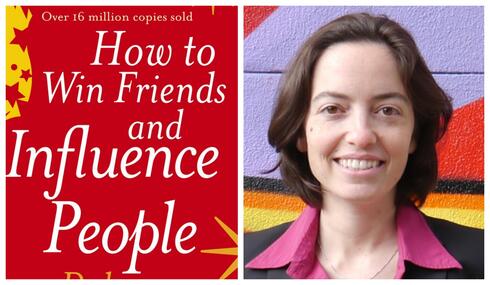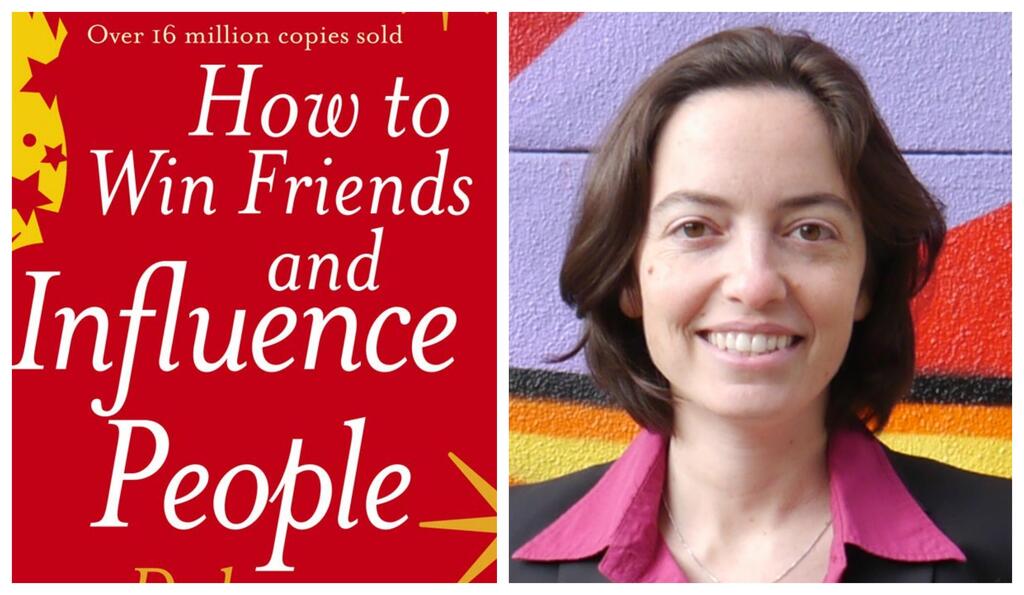
BiblioTech
CTech’s Book Review: The OG playbook for human interaction
Netta Kivilis, Founder and CEO of Blue Seedling, has joined CTech to share a review of "How to Win Friends and Influence People” by Dale Carnegie
Netta Kivilis is the Founder and CEO of Blue Seedling, a B2B startup and scaleup marketing agency. She has joined CTech to share a review of "How to Win Friends and Influence People” by Dale Carnegie.
Title: "How to Win Friends and Influence People”
Author: Dale Carnegie
Format: Book, Tablet, Audiobook
Where: Home, Commute, Vacation.
Summary:
If you haven't read "How to Win Friends and Influence People," you're missing out on the OG playbook for human interaction. Written in 1936, Dale Carnegie drops timeless wisdom on how to build meaningful connections both personally and professionally.
The book’s principles, like active listening and genuine appreciation, are as relevant today as they were nearly a century ago. While the book's societal or lifestyle examples may feel (extremely) dated, its core message remains invaluable: mastering interpersonal skills can unlock doors in every facet of life - whether you're pitching to investors or just trying to get the barista to remember your name.
Important themes:
The book revolves around several key themes that are foundational to effective human interaction. Here are the ones I found most impactful:
- Genuine Interest: Being authentically interested in others not only makes you likable but also encourages a more meaningful connection.
- Active Listening: Similarly, the book emphasizes the importance of truly hearing what others are saying, rather than pretending to listen and just waiting for your turn to speak.
- Appreciation Over Criticism: The book advises giving compliments and avoiding criticism, as people are more likely to respond positively to appreciation.
- The Self-Centered Universe: Not a critique, just a fact. People care about themselves. Recognize this, and you can tailor your message to what they actually want to hear (this is gold for anyone in marketing and sales).
- Smile: A simple yet powerful tool that worked in 1936, and works now.
What I’ve learned:
What struck me most about the book is its simplicity and applicability. The techniques are straightforward but incredibly effective, especially for those who don't consider themselves natural "people persons." For instance, remembering names and personal details about people can go a long way in establishing rapport (plus it makes life more interesting, and fun).
Listening more than talking is another golden rule. It not only makes you a better conversationalist, but it also provides insights into what truly matters to the other person. This is crucial in any business setting, where understanding needs and pain points can make or break a deal, and listening to the people you lead obviously makes you a better leader.
Lastly, the 10:1 ratio of appreciation to criticism is something I try to follow (though combining it with Radical Candor principles - another fantastic book whose BiblioTech you can see here - is challenging). Think about it: when was the last time you went out of your way for someone who only pointed out your flaws? Exactly.
Critiques:
The book's examples are as dated as a rotary phone.
All the examples are white, male, and straight out of a 1930s boardroom or kitchen. This can be jarring for a modern reader, and I wish there was an updated version with contemporary examples, that would make the book's invaluable lessons more relatable to today's diverse audience.
Who should read this book:
If you're in the business of people (newsflash - it's every business) this book is your manual.
CEOs, you'll get insights into leadership. Sales folks, you'll learn how to close without being pushy. Product managers, you'll find out how to influence when you can't command. If you're a human who interacts with other humans, get on it.
And one last thing: I read this book numerous times, and chose it over hundreds of excellent options because in an age where AI is poised to take over everything from legal work to surgery, the human touch is our winning ticket.
This book will teach you how to be so good at human interaction, that your boss won't even think about replacing you with AI.














